Are you considering getting a pet bird? Birds can make wonderful companions with their vibrant colors, melodious songs, and playful personalities. However, it’s important to choose a bird species that is well-suited for domestic life and can thrive in a human environment. In this article, we will explore the top friendly pet bird species, including budgies, cockatiels, African grey parrots, Amazon parrots, conures, lovebirds, Pionus parrots, quaker parrots, finches, and canaries. So, let’s dive in and find the perfect feathered friend for you!
Having a pet bird can bring joy, companionship, and a touch of nature into your home. Before we explore the best pet birds, it’s crucial to understand the commitment and responsibilities that come with owning a bird. Birds require proper care, attention, and an enriched environment to thrive. Additionally, each bird species has its unique characteristics and care requirements.
Are you ready to discover which bird will sing its way into your heart? Join us as we explore the unique charms and needs of the top-friendly pet bird species.
Budgies: The Charming Little Companions
Budgerigars, commonly known as budgies or parakeets, are one of the most popular pet bird species. These small and colorful birds are renowned for their playful and sociable nature. Budgies are excellent mimics and can learn to talk and whistle tunes. They require a spacious cage, a balanced diet, and regular interaction to stay happy and healthy.
Cockatiels: The Whistling Sweethearts
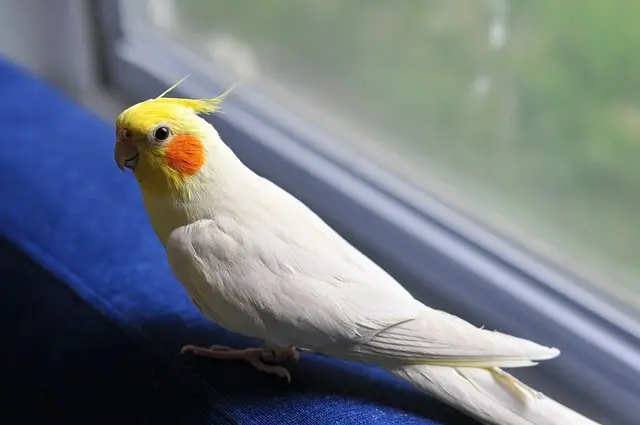
Cockatiels are beloved for their striking crests and melodious whistling. These medium-sized parrots are known for their affectionate and gentle temperament. Cockatiels are highly intelligent and can be trained to perform tricks and mimic sounds. They thrive on social interaction, mental stimulation, and a nutritious diet.
African Grey Parrots: The Einstein of the Avian World
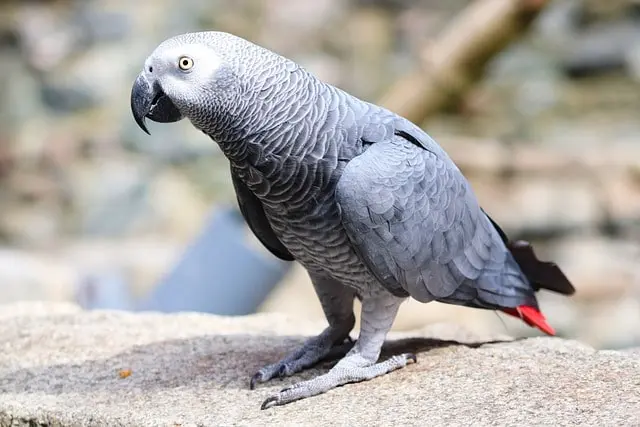
African grey parrots are renowned for their exceptional intelligence and remarkable ability to mimic human speech. These medium to large-sized parrots are highly social and require a great deal of mental stimulation. African greys form strong bonds with their human companions and thrive in an environment that provides them with plenty of attention, interaction, and challenging toys.
Amazon Parrots: The Colorful Entertainers
Amazon parrots are known for their vibrant plumage and outgoing personalities. They are excellent talkers and enjoy showing off their vocal skills. Amazons are highly sociable birds that thrive on human interaction and mental enrichment. However, they can be quite loud at times, so proper training and socialization are essential.
Conures: The Playful Clowns
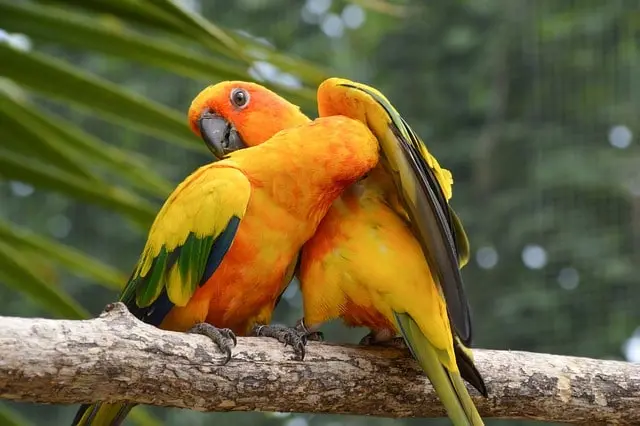
Conures are a diverse group of small to medium-sized parrots known for their playful and mischievous nature. They are full of energy and love to engage in acrobatic displays. Conures require plenty of mental and physical stimulation, including toys, puzzles, and out-of-cage playtime. Their vibrant colors and inquisitive personalities make them a popular choice among bird enthusiasts.
Lovebirds: The Affectionate Beauties
Lovebirds are small parrots that are famous for their strong pair bonding and affectionate nature. They form deep attachments to their human caregivers and can become quite dependent on them. Lovebirds require regular social interaction, mental stimulation, and a diverse diet to thrive. They are best kept in pairs or with dedicated human companions.
Pionus Parrots: The Gentle and Calm Companions
Pionus parrots are known for their gentle and easygoing temperament. They are relatively quiet birds and make great companions for people living in apartments or close quarters. Pionus parrots enjoy spending time with their human companions and need a secure and spacious cage with plenty of toys to keep them mentally stimulated.
Quaker Parrots: The Social Butterflies
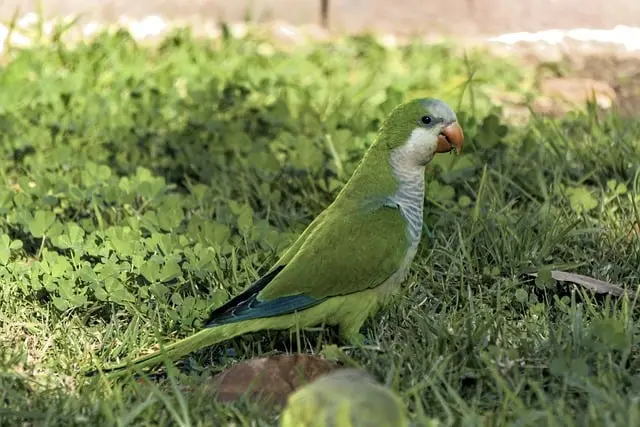
Quaker parrots, also known as monk parakeets, are highly social and gregarious birds. They are excellent talkers and enjoy mimicking sounds from their environment. Quakers are known for their playful antics and can form strong bonds with their human caregivers. They require a spacious cage, plenty of toys, and regular social interaction.
Finches: The Delightful Songsters
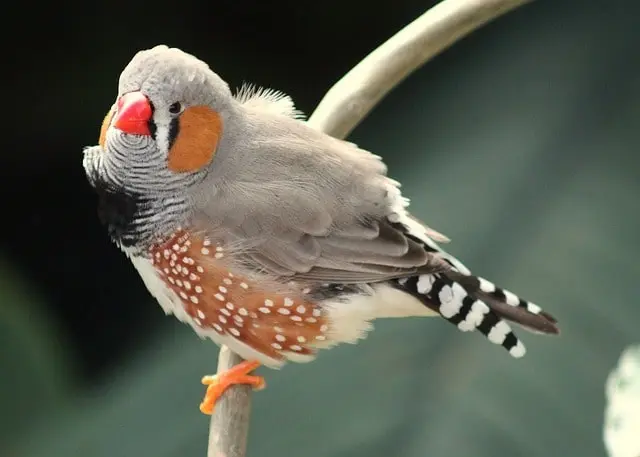
Finches are small, delightful songbirds known for their beautiful melodies. They come in various colors and patterns and are relatively low-maintenance pets. Finches thrive in pairs or small groups and enjoy flying and hopping around in spacious aviaries. They require a balanced diet and fresh water, along with regular cleaning of their cage or aviary.
Canaries: The Serenading Songbirds
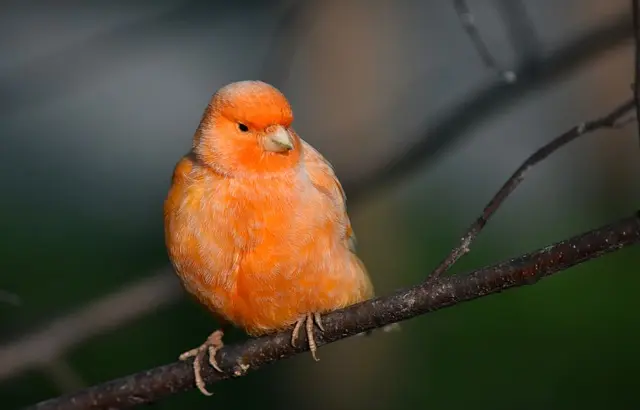
Canaries are renowned for their melodious songs and vibrant colors. These small finches are best known for their enchanting tunes. Canaries are relatively independent birds and are prized for their soothing presence. They require a spacious cage, a varied diet, and regular mental stimulation to keep their spirits high.
Key Considerations Before Getting a Pet Bird
- Lifespan: Be aware of how long the bird species typically lives.
- Care Requirements: Understand the daily care needs of the bird.
- Noise Level: Consider the amount of noise the bird species makes.
- Lifestyle and Commitments: Ensure your lifestyle can accommodate a pet bird.
- Species-Specific Needs: Research the particular needs of the bird species you’re interested in.
Bird Care Essentials Tips
- Spacious Cage: Ensure the cage is large and safe for your bird.
- Toys: Provide appropriate toys for entertainment and stimulation.
- Nutritious Diet: Offer a diet tailored to your bird’s specific species.
- Veterinary Care: Schedule regular check-ups with an avian vet.
- Hygiene: Maintain proper cleanliness in the cage and surrounding area.
- Mental Stimulation: Engage your bird with activities that stimulate their mind.
- Social Interaction: Give your bird plenty of social time and out-of-cage playtime to encourage natural behaviors and prevent boredom.
Training and Socialization Tips for Your Pet Bird
- Positive Reinforcement: This technique teaches basic commands, tricks, and behaviors.
- Regular Socialization: Helps your bird adapt to new environments, people, and experiences.
- Patience is Key: Always be patient, consistent, and gentle throughout the training process.
Health and Diet for Your Pet Bird
- Balanced Diet: Include fresh fruits, vegetables, and high-quality pellets.
- Safe Treats: Offer treats occasionally but avoid chocolate, avocado, and caffeine.
- Cleanliness: Clean food and water dishes regularly.
- Fresh Water: Always provide access to clean water.
- Veterinary Care: Schedule routine check-ups with an avian veterinarian.
Conclusion
Choosing the right pet bird species is an important decision for any bird enthusiast. The top friendly pet bird species mentioned in this article, including budgies, cockatiels, African grey parrots, Amazon parrots, conures, lovebirds, Pionus parrots, quaker parrots, finches, and canaries, offer unique qualities and delightful companionship.
Remember to research each species thoroughly, understand their care requirements, and provide a nurturing and stimulating environment for your feathered friend. Your pet bird can bring years of joy and happiness to your life with proper care, attention, and love.
Frequently Asked Questions (FAQs)
-
How long do pet birds typically live?
The lifespan of pet birds varies depending on the species. Smaller birds like budgies and cockatiels can live up to 15-20 years, while larger parrot species like African greys and Amazons can live well over 50 years with proper care.
-
Can pet birds learn to talk?
Yes, many pet bird species can mimic human speech. African grey parrots, Amazon parrots, and budgies are particularly renowned for their talking abilities.
-
Are pet birds low-maintenance pets?
While some bird species are relatively low-maintenance, all pet birds require proper care, attention, and a stimulating environment to thrive. Regular interaction, mental stimulation, and a balanced diet are essential for their well-being.
-
Can pet birds be kept in pairs?
Yes, many pet bird species benefit from companionship and can be kept in pairs or small groups. However, it’s important to ensure compatibility between the birds and provide adequate space and resources for each bird.
-
Do pet birds require any special veterinary care?
Yes, pet birds should receive regular veterinary check-ups from an avian veterinarian specializing in bird care. These check-ups help monitor their health, detect potential issues, and provide appropriate preventive care.





Leave a Comment
You must be logged in to post a comment.